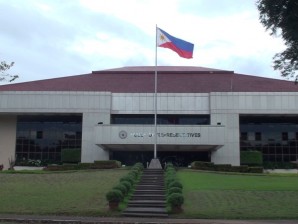MANILA, Philippines—Congress will tackle this month a bill proposing to amend the Anti-Graft and Corrupt Practices Act to penalize not only government employees who accept bribes but also the private individuals who give the bribes.
Rep. Sherwin Tugna of the party-list Citizens Battle Against Corruption (Cibac) said it was about time the law was changed to also penalize corruption in the private sector.
“Corruption has always been associated with the government. People always see that corruption is only prevalent in government offices, agencies and departments. However, it is forgotten that graft and corruption are not limited to the government sector,” said Tugna.
He said the House committee on revision of laws was scheduled to meet on Nov. 21 to tackle the proposed bill.
“We expect that there will be resistance from the private sector, especially from the bids and awards committees and purchasing departments. But honest bidders, employers and business owners will be happy because this will level the playing field and promote a culture of honesty in the private sector,” Tugna said.
Tugna has filed House Bill No. 6610 seeking to amend Republic Act No. 3019 criminalizing graft and corruption in the private sector.
“This bill is based on research and studies made by the Development Academy of the Philippines and recommendations made by the United Nations Convention Against Corruption (Uncac). We also made reference to existing laws in Hong Kong and Singapore that punish bribery and corruption, even if the transaction is purely between private persons in their private capacities. In essence, this bill promotes a culture of honesty and reduction (if not total elimination) in the entire country by including transactions in the private sector,” said Tugna.
Tugna said his bill was meant to implement one of the goals of Uncac which mandates member countries to “take measures, in accordance with the fundamental principles of its domestic law, to prevent corruption involving the private sector, enhance accounting and auditing standards in the private sector, and, where appropriate, provide effective, proportionate and dissuasive civil, administrative or criminal penalties for failure to comply with such measures.”
The bill has a specific provision entitled “Corruption by Private Persons” which penalizes private persons involved in corrupt practices with imprisonment of six to 15 years and fines of between P500 and P1 million.
Tugna said his bill would met out a harsh penalty to public officers who would be required to pay a fine equivalent from 30 percent to 60 percent of their annual income and one year imprisonment.
